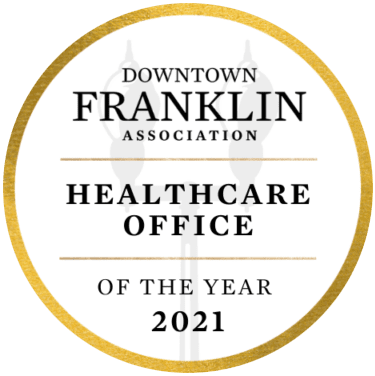- (615) 595-6111
- 615-595-9514
- 216 3rd Ave N, Franklin, TN 37064
- office@downtownfranklinfamilydentistry.com
- (615) 595-6111
- 615-595-9514
- 216 3rd Ave N, Franklin, TN 37064
- office@downtownfranklinfamilydentistry.com
Having a tooth removed can be intimidating. We hope by explaining why it might need to be done and what you can expect from the procedure itself that we can give you some additional peace of mind. Plus, we want to make sure your recovery is as easy as possible by providing advice about what you can do before and afterward.
A dentist may recommend having a tooth extracted for many reasons. These are some of the most common:
Tooth decay that reaches the nerve
If a tooth has decayed to the point where the nerve is exposed, it can cause severe pain and infection. When a tooth has an infection or decay that has become too deep for traditional treatments, fillings or root canals will no longer be able to fix it.
Injury and severe damage
If a tooth is severely damaged in an accident, it may be beyond repair and need to be removed. (However, just because a tooth is knocked out does not mean it can’t be repaired! In this situation, fast action could help save your tooth. If this should happen, please follow these directions and call us immediately!)
Impacted wisdom teeth or overcrowding
Wisdom teeth are the four molars that usually erupt in the back of the mouth between your late teens and mid 20s. In some cases, wisdom teeth can grow in sideways or impacted, which can cause pain, infection, and damage to other teeth. Othertimes a wisdom tooth (and sometimes other teeth) may cause overcrowding in the mouth. In both scenarios, extraction is often recommended.
Severe periodontal disease
Periodontal disease is a serious gum disease that can cause the teeth to become loose. In severe cases, we may recommend extracting teeth that are too far gone to save.
Before the procedure, we will conduct a thorough examination of your teeth and gums to ensure the extraction is necessary. We will also take X-rays to determine how difficult it will be to remove the tooth.
You should make sure to schedule the extraction appointment for when you will have plenty of time to rest afterwards and can follow any recommendations for aftercare. It is also a good idea to stock up on soft foods that you can eat while the extraction site heals.
A tooth extraction is a minor surgical procedure that is usually performed under local anesthesia. In some cases, general anesthesia may be used, especially for wisdom tooth extractions.
The procedure starts by numbing the area around the tooth with a local anesthetic so that you don’t feel any discomfort during the process. Once the area is numb, we use various tools to remove the tooth. In some cases, the tooth may need to be sectioned into smaller pieces before removing it.
After the tooth is removed, the area is packed with gauze to stop any bleeding. You may also be given a prescription for pain medication. The entire procedure typically takes about 30 minutes, but can take longer if multiple teeth are being extracted at once.
Once the extraction is complete, you may experience some swelling and discomfort, but this should subside within a few days. To promote healing and avoid complications, such as an infection or dry socket, you will want to take special precautions. We will provide you with specific instructions at your appointment, but here’s some general advice:
Rest: Avoid strenuous activity and vigorous exercise for 24 hours after the procedure.
Ice: Apply ice packs to the area of the extraction for 20 minutes at a time, several times a day. This will help to reduce swelling and pain.
Bleeding: Some bleeding is normal after a tooth extraction. If the bleeding is heavy or does not stop after 24 hours, bite down on gauze and contact us.
Pain: Pain relief after an extraction can often be covered with over-the-counter medications. If your extraction is particularly complicated or uncomfortable, we may prescribe a stronger painkiller. Take your pain medication as prescribed but do not take more than that.
Diet: Avoid chewing on the side of the extraction for 7-10 days. Eat soft foods that do not require chewing.
Keep the area clean: Gently rinse your mouth out with salt water several times per day. After 24 hours, you can gently brush your teeth on the side of the extraction. Avoid using mouthwash for 24 hours.
It is important to contact us immediately if you experience any signs of infection after your extraction, such as fever, unusual swelling, or prolonged bleeding. We will be sure to provide you with additional treatment if needed.
The best way to avoid getting a tooth pulled is to take good care of your teeth! This includes flossing daily and brushing twice a day, visiting us for regular checkups and cleanings, and avoiding sugary foods and drinks.
If you do develop a tooth problem, it is important to make an appointment as soon as possible. Early treatment can often prevent the need for a tooth extraction.
We hope this information has been useful, but we also hope that you don’t have to experience an extraction at all! If you would like more information about tooth extractions or need to schedule an appointment at our practice, please don’t hesitate to get in touch with us. We’ll be happy to answer any additional questions you may have.
The idea of getting dentures or partial dentures can be daunting and...
Read MoreAre you interested in providing affordable dental care for you and your...
Read MoreSeptember is Gum Care Month, a time dedicated to highlighting the importance...
Read MoreCheck out our affordable membership plans from Downtown Franklin Family Dentistry.
Read MoreMaintain those smiles all year long, schedule a back-to-school appointment now.
Read MoreWe have exciting news to share with our valued patients at Downtown...
Read MoreChoosing SureSmile Clear Aligners is an investment in your long-term oral health...
Read MoreDental implants are a state-of-the-art solution for replacing missing teeth and restoring...
Read MoreAt Downtown Franklin Family Dentistry, your safety and well-being are paramount in...
Read MoreMaintaining good oral hygiene goes beyond just brushing and flossing at home....
Read MoreAs we age, we often focus on maintaining our youthful appearance, but...
Read MoreApril is Oral Cancer Awareness Month, a time dedicated to highlighting a...
Read MoreAt Downtown Franklin Family Dentistry, we understand dental procedures can sometimes feel...
Read MoreHave you ever admired someone’s flawless smile and wondered how they achieved...
Read MoreAre you tired of wincing in pain every time you indulge in...
Read More

